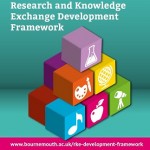 Interreg has been one of the funding sources where BU academics have been successful during previous years. RDS have had a number of enquiries from academics regarding our eligibility to apply for Interreg funding after the UK has left the EU. The answer may be both – yes and no.
Interreg has been one of the funding sources where BU academics have been successful during previous years. RDS have had a number of enquiries from academics regarding our eligibility to apply for Interreg funding after the UK has left the EU. The answer may be both – yes and no.
According to the Withdrawal Agreement, the UK continues participation in all EU programmes funded from the 2014-2020 EU budget. There are final calls for proposals under the 2014-2020 programmes which are ongoing and will close in 2021. The UK continues to be eligible to apply for these, including Interreg, and EU funding will be provided for the whole lifetime of the project.
 The next EU budget period is designed for 2021-2027; if Interreg calls for proposals are to be funded from the EU 2021-2027 budget, UK participants will not be eligible for EU funding.
The next EU budget period is designed for 2021-2027; if Interreg calls for proposals are to be funded from the EU 2021-2027 budget, UK participants will not be eligible for EU funding.
Theoretically there may be a situation that there are two open Interreg calls for proposals with different eligibility criteria for UK participants. Our advice to academics would be to check first if funding for the particular call comes either from the EU 2014-2020 or the 2021-2027 budget.
There will be another blog post in the coming days, providing more details regarding our participation in the Horizon Europe Framework Programme. In the meantime, do not hesitate to contact Research Facilitator – International, Ainar Blaudums, if you have specific questions regarding EU funding.
 Interreg Visit Next Week: Last chance to sign up!
Interreg Visit Next Week: Last chance to sign up! Is it worth applying for all this new Horizon 2020 funding, then?
Is it worth applying for all this new Horizon 2020 funding, then?










 Evidence Synthesis Centre open at Kathmandu University
Evidence Synthesis Centre open at Kathmandu University Expand Your Impact: Collaboration and Networking Workshops for Researchers
Expand Your Impact: Collaboration and Networking Workshops for Researchers Visiting Prof. Sujan Marahatta presenting at BU
Visiting Prof. Sujan Marahatta presenting at BU 3C Event: Research Culture, Community & Can you Guess Who? Thursday 26 March 1-2pm
3C Event: Research Culture, Community & Can you Guess Who? Thursday 26 March 1-2pm ECR Funding Open Call: Research Culture & Community Grant – Apply now
ECR Funding Open Call: Research Culture & Community Grant – Apply now ECR Funding Open Call: Research Culture & Community Grant – Application Deadline Friday 12 December
ECR Funding Open Call: Research Culture & Community Grant – Application Deadline Friday 12 December MSCA Postdoctoral Fellowships 2025 Call
MSCA Postdoctoral Fellowships 2025 Call ERC Advanced Grant 2025 Webinar
ERC Advanced Grant 2025 Webinar Update on UKRO services
Update on UKRO services European research project exploring use of ‘virtual twins’ to better manage metabolic associated fatty liver disease
European research project exploring use of ‘virtual twins’ to better manage metabolic associated fatty liver disease